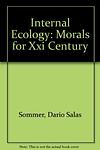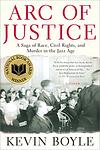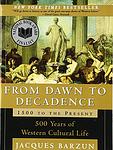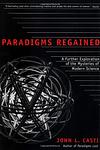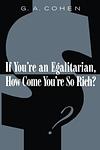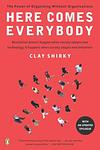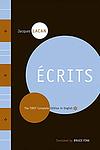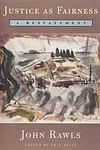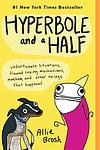The Greatest "Nonfiction" Books Since 2000
Click to learn how this list is calculated.
This list represents a comprehensive and trusted collection of the greatest books. Developed through a specialized algorithm, it brings together 284 'best of' book lists to form a definitive guide to the world's most acclaimed books. For those interested in how these books are chosen, additional details can be found on the rankings page.
Genres
Countries
Date Range
Reading Statistics
Click the button below to see how many of these books you've read!
Download
If you're interested in downloading this list as a CSV file for use in a spreadsheet application, you can easily do so by clicking the button below. Please note that to ensure a manageable file size and faster download, the CSV will include details for only the first 500 books.
Download-
101. Capital in the Twenty-First Century by Thomas Piketty
This book provides a comprehensive analysis of the dynamics of capital accumulation and distribution over the last few centuries. The author argues that the rate of capital return in developed countries is persistently greater than the rate of economic growth, leading to high levels of wealth inequality. The book further suggests that the level of income inequality is not primarily a result of differences in individual labor income but rather the result of differences in capital ownership and the income derived from it. The author proposes a global tax on wealth to prevent soaring inequality.
-
102. London: The Biography by Peter Ackroyd
This book is a comprehensive exploration of the city of London, from its ancient origins to the modern era. The author delves into the city's rich history, culture, and unique character, examining its evolution through various lenses such as crime, religion, commerce, education, and entertainment. The narrative is brought to life with fascinating anecdotes, vivid descriptions, and a wealth of historical detail, providing an immersive and engaging portrait of one of the world's most iconic cities.
-
103. The Noonday Demon by Andrew Solomon
"The Noonday Demon" is a comprehensive exploration of depression, drawing on the author's own struggle with the illness and interviews with fellow sufferers, doctors, and scientists, drug designers, and philosophers. It examines depression in personal, cultural, and scientific terms, covering aspects like the complexities of different treatments and the impact of the disease on various demographic populations. The book also delves into the thorny moral and ethical questions posed by emerging biological explanations for mental illness.
-
104. The Power Of Habit by Charles Duhigg
This book delves into the science of habit formation, illustrating how habits influence our lives and how they can be transformed to foster success. It explores the neurological patterns that govern habits, the impact of societal routines on individual behavior, and the ways in which understanding these patterns can help us improve our health, increase productivity, and change our businesses and communities. By dissecting the components of the habit loop—cue, routine, and reward—the book provides insights into how habits work and offers practical advice on how to change them, drawing on a wealth of research and real-world examples.
-
105. Just Mercy by Bryan Stevenson
This book is a profound work of non-fiction that focuses on the author's experiences as a young lawyer fighting for the rights of those wrongfully convicted or excessively punished. The narrative primarily revolves around the case of a black man sentenced to death for a crime he didn't commit. The author not only exposes the inherent racial bias and systemic flaws in the American criminal justice system, but also provides a compelling argument for compassion in the pursuit of justice.
-
106. Internal Ecology Morals For Xxi Century by Dario Salas Sommer
This book delves into the intricate relationship between individual moral development and the broader ecological balance of our planet, proposing that the environmental crises of the 21st century are deeply intertwined with the moral and ethical decay observed in contemporary society. The author argues that by fostering a deeper understanding of our internal ecology—our thoughts, emotions, and spiritual well-being—we can cultivate a more harmonious relationship with the external world. Through a blend of philosophical insight and practical guidance, the text invites readers to embark on a journey of personal transformation as a foundational step towards addressing the global environmental challenges of our time, emphasizing the critical role of individual responsibility and ethical conduct in shaping a sustainable future.
-
107. The Silent Steppe: The Story Of A Kazakh Nomad Under Stalin by Mukhamet Shayakhmetov
"The Silent Steppe: The Story Of A Kazakh Nomad Under Stalin" is a gripping memoir that chronicles the life of a Kazakh nomad during the brutal reign of Stalin. The book offers a firsthand account of the hardships, persecution, and forced collectivization experienced by the Kazakh people under Soviet rule. Through the eyes of the author, readers gain insight into the resilience, traditions, and struggles of the Kazakh nomadic culture in the face of political oppression.
-
108. Homo Deus by Yuval Noah Harari
This book explores the future of humankind, building upon the foundation laid by its exploration of our past. It delves into the potential paths humanity might take as technological advancements and artificial intelligence begin to challenge the very essence of what it means to be human. The narrative posits that as we conquer famine, war, and plague, our focus shifts towards achieving happiness, immortality, and divinity, raising profound questions about our future roles and values in a world where machines and algorithms might outperform us in thinking, making decisions, and understanding the universe. Through a blend of philosophy, history, and future-gazing, the book invites readers to consider the implications of such a future, both exhilarating and daunting.
-
109. H Is For Hawk by Helen MacDonald
"H Is For Hawk" is a memoir by Helen MacDonald about her experiences training a goshawk named Mabel after the sudden death of her father. MacDonald reflects on her grief and the challenges of training a wild bird while also delving into the history of falconry and the life of T.H. White, the author of "The Once and Future King" who also trained a goshawk. The book explores themes of loss, nature, and the complexities of human-animal relationships.
-
110. Arc of Justice by Kevin Boyle
"Arc of Justice" is a riveting and complex story that unfolds in the racially tense backdrop of 1920s Detroit. The narrative follows an African American physician who moves his family into a predominantly white neighborhood, resulting in a chain of violent events. The doctor stands trial for murder, and the case garners national attention. The book delves into the doctor's fight for justice and the broader societal implications of racial tension, prejudice, and civil rights in America.
-
111. From Dawn To Decadence : 1500 To The Present by Jacques Barzun
This book offers a sweeping overview of Western cultural life from the Renaissance to the early 21st century. It delves into the pivotal events, ideas, and personalities that have shaped the modern world, exploring how cultural movements and the evolution of thought have influenced society's development. The narrative weaves through various disciplines, including art, music, politics, and science, to provide a comprehensive understanding of the forces that have led to both the achievements and challenges of Western civilization. Through a rich tapestry of historical analysis, the work invites readers to reflect on the complexity and dynamism of the human experience over the last five centuries.
-
112. Paradigms Regained by John L. Casti
This book delves into the exploration of the scientific quest to understand reality, focusing on the examination of six major intellectual puzzles that range from biology and the origin of life to the complexities of artificial intelligence and the potential for other forms of life in the universe. Through a critical analysis, the author evaluates various scientific theories and models, challenging the reader to reconsider what they think they know about the world. The narrative is both accessible and thought-provoking, aiming to bridge the gap between complex scientific concepts and the general public's understanding, ultimately encouraging a deeper appreciation for the mysteries that science seeks to unravel.
-
114. The Great Divergence by Kenneth Pomeranz
This book challenges traditional views on the rise of the Western world's economic dominance, arguing that until the late 18th century, parts of Europe, China, Japan, and the Islamic world were similarly advanced. The author contends that geographical and ecological factors, rather than inherent cultural or technological superiority, played a crucial role in Europe's industrialization. Specifically, the availability of coal in Britain and the exploitation of the New World's resources are highlighted as pivotal in creating the "Great Divergence" between the West and the rest of the world. Through this lens, the book reevaluates the roots of global inequality and the factors that have shaped the modern economic landscape.
-
115. If You're An Egalitarian, How Come You're So Rich? by G. A. Cohen
This book delves into the apparent contradiction between advocating for egalitarian principles and possessing personal wealth. The author, a prominent political philosopher, uses a blend of rigorous argument, personal reflection, and analytical philosophy to explore whether it is hypocritical for a wealthy person to support redistributive policies. The text challenges readers to consider the moral implications of their own economic status and beliefs, and examines broader issues of justice, equality, and personal responsibility within a capitalist society. Through engaging philosophical inquiry, the book prompts a deeper understanding of the practical and ethical tensions that accompany discussions of wealth and equality.
-
116. How To Change Your Mind: What The New Science Of Psychedelics Teaches Us About Consciousness, Dying, Addiction, Depression, And Transcendence by Michael Pollan
In "How To Change Your Mind," Michael Pollan explores the history, science, and potential therapeutic uses of psychedelic drugs such as LSD and psilocybin. He interviews researchers, therapists, and individuals who have undergone psychedelic experiences, and shares his own personal experiences with these substances. Pollan argues that psychedelics have the potential to unlock new understandings of consciousness, spirituality, and mental health, and could offer new treatments for addiction, depression, and end-of-life anxiety. He also explores the cultural and political factors that led to the demonization and criminalization of these substances, and advocates for a reevaluation of their legal status in order to facilitate further research and exploration.
-
117. Here Comes Everybody by Clay Shirky
The book explores the profound impact of the internet on modern society, particularly focusing on how social tools such as social media enable individuals to collaborate, organize, and communicate more effectively than ever before. It delves into various case studies and examples to illustrate how these digital tools are transforming traditional notions of communication and group dynamics, emphasizing the shift from institutional to more decentralized forms of cooperation. The author argues that this technological evolution is reshaping the way people create content, share information, and even initiate social movements, ultimately altering the landscape of power and governance in the digital age.
-
118. Five Days at Memorial: Life and Death in a Storm-Ravaged Hospital by Sheri Fink
The book provides an in-depth investigation into the crisis at a New Orleans hospital in the wake of Hurricane Katrina. It delves into the harrowing five days where staff, patients, and their families were trapped in the hospital without power or a functioning evacuation plan. The narrative explores the ethical dilemmas faced by the medical staff, including alleged euthanasia of critically ill patients, and the subsequent legal battles, raising profound questions about end-of-life care and disaster management.
-
119. Écrits: The First Complete Edition in English by Jacques Lacan
This book is a comprehensive collection of essays by a renowned psychoanalyst, offering readers an in-depth understanding of his theories on human psychology. The author delves into complex topics such as the unconscious, the mirror stage, and the concept of the Other, while also exploring the intersection of psychoanalysis with philosophy, linguistics, and anthropology. The book challenges conventional understanding of subjectivity and identity, making it a seminal work in the field of psychoanalysis.
-
120. Imperial Life in the Emerald City by Rajiv Chandrasekaran
"Imperial Life in the Emerald City" provides an in-depth look at the American occupation of Iraq, focusing on the Green Zone in Baghdad, which served as the U.S. headquarters. The book reveals how the U.S. administration was ill-prepared for the task of rebuilding Iraq, and how their lack of understanding about the country and its culture led to many mistakes and blunders. The author, through his first-hand accounts and interviews, paints a picture of a surreal, insulated world within the Green Zone, cut off from the harsh realities of the war-torn country outside.
-
121. The Sibley Guide To Bird Life & Behavior by David Allen Sibley, David Sibley
This comprehensive guide offers bird enthusiasts an in-depth look at the behavior, biology, and life cycles of North American birds. It combines detailed illustrations with informative text to cover a wide range of topics, including the intricacies of avian social structures, communication, migration, feeding habits, and breeding. The book serves as an invaluable resource for both novice and experienced birdwatchers, providing a deeper understanding of the factors that influence bird behavior and the ecological roles they play in their habitats.
-
122. Justice As Fairness by John Rawls
The book presents a theory of justice that emphasizes a fair system of cooperation over time, from one generation to the next. The author argues that the principles of justice are those that free and rational persons would accept in an initial position of equality, as defined by the "original position" and the "veil of ignorance." This theoretical approach ensures that no one is advantaged or disadvantaged by natural fortune or social circumstances in the selection of principles. The work elaborates on two fundamental principles of justice: the first guarantees equal basic liberties, while the second arranges social and economic inequalities so that they are both reasonably expected to be to everyone's advantage and attached to positions open to all under conditions of fair equality of opportunity.
-
123. Hyperbole And A Half by Allie Brosh
"Hyperbole And A Half" is a humorous and deeply personal memoir that combines witty anecdotes and colorful illustrations to explore the author's experiences with mental health, childhood, and adulthood. Through a series of hilarious and relatable stories, the book offers a unique perspective on life's challenges and the power of humor in navigating them.
-
124. The Bully Pulpit: Theodore Roosevelt, William Howard Taft, And The Golden Age Of Journalism by Doris Kearns Goodwin
This historical work delves into the vibrant era of early 20th-century America, exploring the close friendship and eventual political rivalry between two presidents, Theodore Roosevelt and William Howard Taft. It also highlights the crucial role of muckraking journalists who, with the support of Roosevelt's bully pulpit, exposed corruption and galvanized public opinion. The narrative weaves together the personal and political dynamics that shaped the Progressive Era, showcasing how these leaders and the press collectively brought about significant reforms and forever transformed the American political landscape.
-
125. de Kooning by Mark Stevens, Annalyn Swan
This book offers an in-depth study into the life and works of a renowned Dutch-American Abstract Expressionist artist. The authors delve into his troubled childhood in Rotterdam, his immigration to America, and his struggles with alcoholism and Alzheimer's in his later years. They also explore his artistic journey, from his early work as a house painter to his rise as a leading figure in the New York art scene, detailing his unique style that blended abstraction and figuration. The book also highlights his tumultuous relationships, particularly with women, and how these influenced his art.
Reading Statistics
Click the button below to see how many of these books you've read!
Download
If you're interested in downloading this list as a CSV file for use in a spreadsheet application, you can easily do so by clicking the button below. Please note that to ensure a manageable file size and faster download, the CSV will include details for only the first 500 books.
Download




